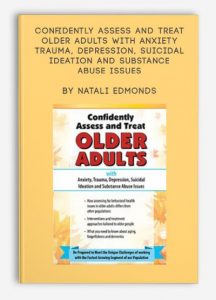 Confidently Assess and Treat Older Adults with Anxiety, Trauma, Depression, Suicidal Ideation and Substance Abuse Issues by Natali Edmonds
Confidently Assess and Treat Older Adults with Anxiety, Trauma, Depression, Suicidal Ideation and Substance Abuse Issues by Natali Edmonds
More information about Medical:
Medicine is the science and practice of establishing the diagnosis, prognosis, treatment, and prevention of disease.
Medicine encompasses a variety of health care practices evolved to maintain and restore health by the prevention and treatment of illness.
Contemporary medicine applies biomedical sciences, biomedical research, genetics, and medical technology to diagnose, treat, and prevent injury and disease,
typically through pharmaceuticals or surgery, but also through therapies as diverse as psychotherapy, external splints and traction, medical devices, biologics, and ionizing radiation, amongst others.
Medicine has been around for thousands of years, during most of which it was an art (an area of skill and knowledge) frequently having connections to the religious and
philosophical beliefs of local culture. For example, a medicine man would apply herbs and say prayers for healing, or an ancient philosopher and physician would apply bloodletting according to the theories of humorism.
In recent centuries, since the advent of modern science, most medicine has become a combination of art and science (both basic and applied, under the umbrella of medical science).
While stitching technique for sutures is an art learned through practice, the knowledge of what happens at the cellular and molecular level in the tissues being stitched arises through science.
Outline:
How Working with Older Adults Differs from Other Clients
- Psychopharmacological treatments and the senior metabolism
- Social systems, family and life role transitions
- Generational stigma, therapy and communication
- Elder abuse/neglect
- Finding the strengths of older clients
The Aging Brain:
What You Need to Know About Aging, Forgetfulness and Dementia
- Forgetfulness vs. pathology
- Cognitive assessment tools
- Clinical differences among common dementia syndromes
Treat Late-Life Anxiety Disorders
- Recognize late-life anxiety – assessment considerations
- Somatic overlap with medical disorders
- Generalized Anxiety Disorder (GAD) vs. specific phobias
- Psychotherapeutic treatments
- CBT techniques and older adults
- Relaxation techniques
Depression Over 65:
Assessment and Treatment Approaches
- Assessment strategies for late-life depression
- Social support in late life depression
- Working with grief and loss – unique characteristics of older clients
- Apply evidence-based psychotherapeutic treatments
- Focus on today’s problems with CBT
- Mindfulness as an adjunctive
- Behavioral Activation with the elderly
- Adaptive exercise for the physically challenged
Trauma-Informed Treatment of Older Adults
- Special considerations when assessing seniors for trauma
- Trauma and somatic complaints
- Overcoming shame and stigma
- Identifying co-morbid psychiatric conditions
- Psychotherapeutic treatments
Crisis Management:
Suicide and Substance Abuse Disorders in Seniors
- Drug Abuse Disorders in older adults
- Unique vulnerabilities and diagnostic difficulties
- Assessment instruments
- Motivational Interviewing and relapse prevention
- Suicide in older adults
- The complexity of suicidal behavior in older adults
- Assessment and screening tools
- Treatment approaches and crisis guidance
Description:
Older adults are the fastest growing segment of our population. Late-life is a complicated time full of adjustment and transition. Older adults struggling to ride a wave of change are increasingly likely to show up in offices like yours with anxiety, trauma, depression, substance abuse and other mental health issues.
But you worry that assessing and treating people over age 65 is just for specialists. That without lengthy and expensive training you’ll be unable to successfully meet the unique challenges of working with this population.
This recording will transform your practice with older adults from one of hesitance and self-doubt to one of prepared confidence. Get the skills and tools you need to effectively assess and treat older clients for anxiety, trauma, depression, suicidal ideation, and substance use issues. From differentiating the signs of dementia from depression to overcoming generational sigma and shame surrounding mental health conditions, you’ll walk away with a roadmap for combining proven interventions from CBT, Mindfulness, and Behavioral Activation with practical considerations for effectively working with older adults.
Can you afford to be unprepared to serve this rapidly growing population?
Purchase today and ensure that you’re poised and ready to provide the best care possible when older clients walk through your door!
PsyD, ABPP
Natali Edmonds, PsyD, ABPP, is Board Certified in Geropsychology by the American Board of Professional Psychology. Dr. Edmonds is a geropsychologist for the Home-based primary care program with the Veterans Affairs Phoenix Health Care System where she provides psychotherapy to medically compromised older adults in the home and via telehealth modalities. Dr. Edmonds conducts in-home cognitive assessments for older veterans who are demonstrating declines in cognitive functioning and also engages in caregiver stress interventions as appropriate. An active member of interdisciplinary treatment team, she provides psychology relevant staff trainings. Dr. Edmonds also provides education and support through Dementia Careblazers, an online resource for dementia that gives them the knowledge, skills, and information they need to take the best care of themselves and their loved ones with dementia. Dr. Edmonds earned her Psy.D. from the Arizona School of Professional Psychology of Argosy University.
Speaker Disclosures:
Financial: Natali Edmonds has an employment relationship with the Veterans Affairs Phoenix Health Care System; and Dementia Careblazers.. She receives a speaking honorarium from PESI, Inc.


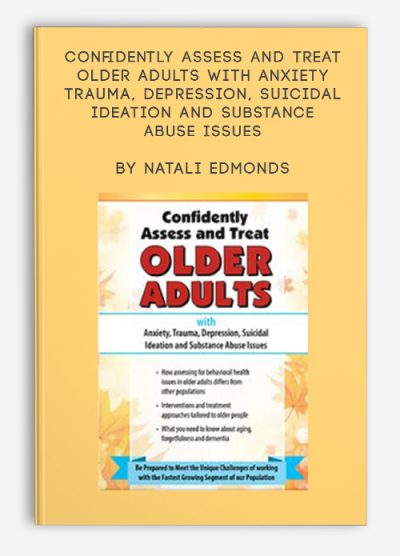

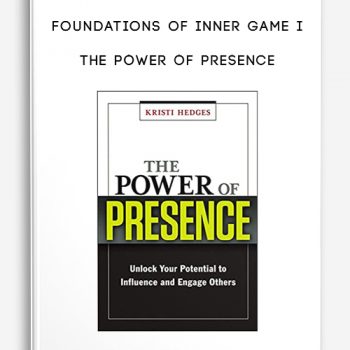
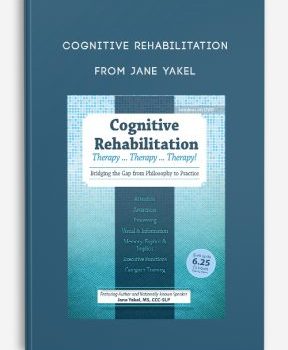


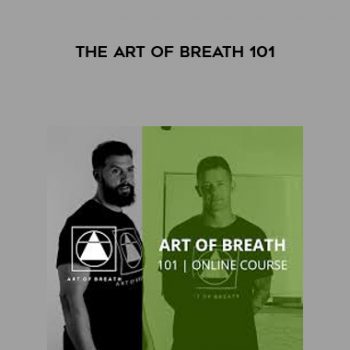
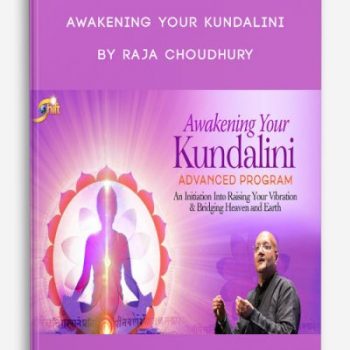

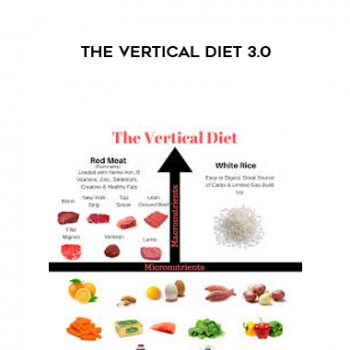

tristian –
This is Digital Download service, the course is available at Coursecui.com and Email download delivery.